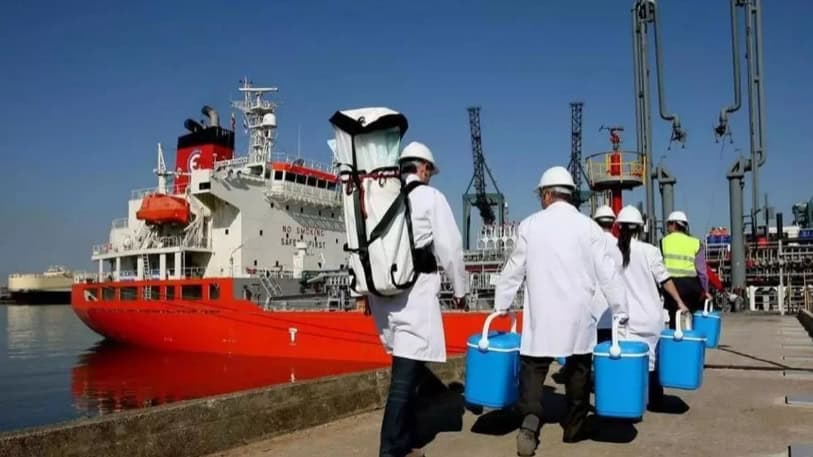
In the midst of a year marked by fluctuating weather conditions and the ongoing water crisis in Catalonia, the government has authorized works to load desalinated water onto ships from Sagunto. This measure seeks to prepare the country for possible future water emergencies, although recent rains have temporarily alleviated the situation.
Faced with water crisis, Catalonia adopts extreme measures
Background and current context of the water crisis
Recent rains have significantly improved water levels in the reservoirs of Catalonia and Andalusia, in contrast to the severe water emergency experienced at the beginning of the year. However, the authorities are not letting their guard down.
In particular, Catalonia has opted for an innovative and temporary solution: the installation of a floating desalination plant in the port of Barcelona. This project is designed to address new emergencies if drought returns in the fall or next year.
Drought crisis in Catalonia: reservoirs reach historical lows
On the other hand, the central government, through the Ministry for Ecological Transition and the Demographic Challenge, has decided to continue with the preparations to transfer water in ships, ensuring that the Sagunto desalination plant is connected to the port.
This measure, although not urgently needed at present, is considered an essential precaution for future water crises.
Works and financing
The works in Sagunto will be carried out on an emergency basis and will cost approximately 3.5 million euros. They are expected to be completed in less than one month. The Water Directorate General will be responsible for selecting the company in charge of the works, reflecting the urgency and importance of the project.
Due to the impact of the drought in Catalonia there will be less construction of swimming pools
The adaptation of the pipelines will allow the transfer of water from the Sagunto desalination plant, currently inactive, to the port. This infrastructure will not only benefit Sagunto but will also allow the transport of water to other Mediterranean regions in case of need.
Floating desalination plant in Barcelona due to water crisis
At the same time, Catalonia has decided to install a floating desalination plant in the port of Barcelona, a solution considered more viable and sustainable in the long term.
This portable plant, pending the signing of the contract with Abengoa, is an initiative of the Department of Climate Action to mitigate the effects of future droughts. The capacity of this desalination plant will make it possible to supply water to the population more efficiently and quickly in emergency situations.
Preparations for future emergencies
The authorization of these works and the installation of the floating desalination plant reflect a proactive and preventive approach on the part of the authorities. The government is aware that, although the current situation is not critical, climate change and fluctuations in rainfall patterns mean that water crises are becoming more frequent and unpredictable.
Drought in Catalonia: restrictions on consumption and emergency measures
In Catalonia, many internal basins are in the exceptional phase, the last step before declaring a water emergency. These conditions require an adequate infrastructure to face possible crises.



